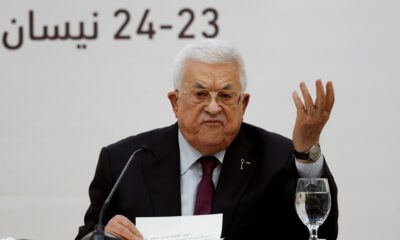World
Trump vows March 4 tariffs for Mexico, Canada, extra 10% for China over fentanyl

U.S. President Donald Trump on Thursday said his proposed 25% tariffs on Mexican and Canadian goods will take effect on March 4 along with an extra 10% duty on Chinese imports because deadly drugs are still pouring into the U.S. from those countries.
Trump told reporters in the Oval Office that the fresh tariffs on Chinese imports would stack on top of the 10% tariff that he levied on Feb. 4 over the fentanyl opioid crisis, resulting in a cumulative 20% tariff, Reuters reported.
Trump first announced the new duties on Chinese imports in a post, opens new tab on his Truth Social site that he would impose the additional 10% tariff, effective March 4.
In the post, Trump said drugs, namely fentanyl, were still coming into the U.S. at “very high and unacceptable levels,” with a large percentage of them the deadly opioid fentanyl.
Trump told reporters he decided to add the extra tariffs on China and stick to the Tuesday deadline for Canada and Mexico given what his administration sees as insufficient progress on curbing fentanyl flows into the country.
Asked if Mexico and Canada had made enough progress on curbing fentanyl shipments into the U.S., Trump said: “I don’t see that at all. No, not on drugs.”
“There are ongoing discussions with the Chinese, Mexico and Canada,” a White House official told Reuters. “We’ve gotten a good handle on the migration issue, but there are still concerns on the other issue of fentanyl deaths.
Sources told Reuters that Mexico will extradite to the United States drug lord Rafael Caro Quintero, who was convicted in 1985 of murdering a U.S. Drug Enforcement Administration agent but released in 2013 and returned to trafficking.
According to the Centers for Disease Control, 72,776 people died from synthetic opioids in 2023 in the U.S., chiefly from fentanyl.
FOREIGN AID FREEZE
Customs and Border Patrol agents seized 991 pounds of fentanyl at the southwest border in January 2025, down 50.5% from a year earlier, but still enough to kill many millions of Americans, the White House official said.
Trump’s move to blame Mexico and Canada for the continuing flow of fentanyl into the U.S. comes as his freeze on American foreign aid is disrupting efforts to fight the illicit trade.
Reuters reported on Monday that his aid freeze has stalled the planned expansion of a United Nations program to help the Mexican Navy better screen cargo and interdict fentanyl ingredients and other contraband, and other activities.
Also hampering U.S. drug interdiction efforts is a decision by U.S. Customs and Border Protection to delay implementation of a ban on duty-free low-value package shipments from Canada, China and Mexico until better screening can be implemented.
TARIFF TACTICS
Trump’s decision to ratchet up tariffs on Chinese goods mirrors his moves to escalate tariffs during his first-term trade wars with Beijing until serious trade negotiations took place between the world’s two largest economies.
Dean Cheng, senior adviser at the U.S. Institute of Peace, said the rising tariffs were part of a broad push by Trump to respond to Chinese challenges that also included the State Department’s removal of wording about not supporting Taiwan independence to tougher scrutiny of U.S.-listed Chinese companies.
“It’s all the pieces on the chessboard,” he said.
The Chinese embassy had no immediate comment.
Thus far, Chinese President Xi Jinping has not engaged in negotiations over fentanyl, instead applying limited 10% retaliatory duties on U.S. energy and farm equipment.
But Beijing could push back harder as Trump’s new tariffs reach 20% on U.S. imports from China, on top of existing duties of up to 25% imposed during Trump’s first term. U.S. imports from China totaled $439 billion last year, according to U.S. Census Bureau data.
Piling on more tariffs could pose risks to both the Chinese and U.S. economies. China has been struggling with a property crisis and weak domestic demand, while U.S. inflation remains sticky and interest rates are elevated.
China, in a letter to U.S. Trade Representative Jamieson Greer, called for equal dialogue and consultation.
Trump has targeted early April for implementing broader “reciprocal tariffs” to match the import duty rates of other countries and offset their other restrictions.
During a news conference on Thursday, Trump downplayed the potential inflationary impact of tariffs for Americans, arguing that his first-term tariffs on China raised hundreds of billions of dollars without negatively affecting the U.S. economy.
“I find that it’s not about inflation. It’s about fairness. And the inflation for us has not existed, and I don’t think it’s going to exist,” he said.
TARIFF, BORDER TALKS
Canadian and Mexican officials were due to meet with Trump administration counterparts in Washington on Thursday and Friday to try to forestall the tariffs, which could deal a serious blow to a highly integrated North American economy.
Mexican Economy Minister Marcelo Ebrard will meet with Greer on Thursday and Commerce Secretary Howard Lutnick on Friday.
Ebrard’s deputy, Vidal Llerenas, on Thursday said Mexico could adopt other trade measures beyond the recent tariffs it imposed on certain imports to reduce cheap shipments from China.
In Canada, Public Safety Minister David McGuinty said on Thursday that the progress Canada has made on tightening security along the border with the United States and combating drug smuggling should satisfy the Trump administration.
“The evidence is irrefutable – progress is being made,” McGuinty said in televised remarks to reporters in Washington ahead of two days of talks with U.S. officials.
“In my view, any test that was put on Canada in terms of showing progress and meeting standards for the border – I believe those have been met,” he said.
The Canada Border Services Agency said in a statement that it was launching a targeted, cross-country initiative to intercept illegal contraband arriving and leaving the country, with a focus on fentanyl and other synthetic narcotics.
World
Ukraine ready to hold talks with Russia once ceasefire in place, Zelenskiy says
Zelenskiy said he would be happy to meet U.S. President Donald Trump later this week when they attend the funeral of Pope Francis along with other world leaders.
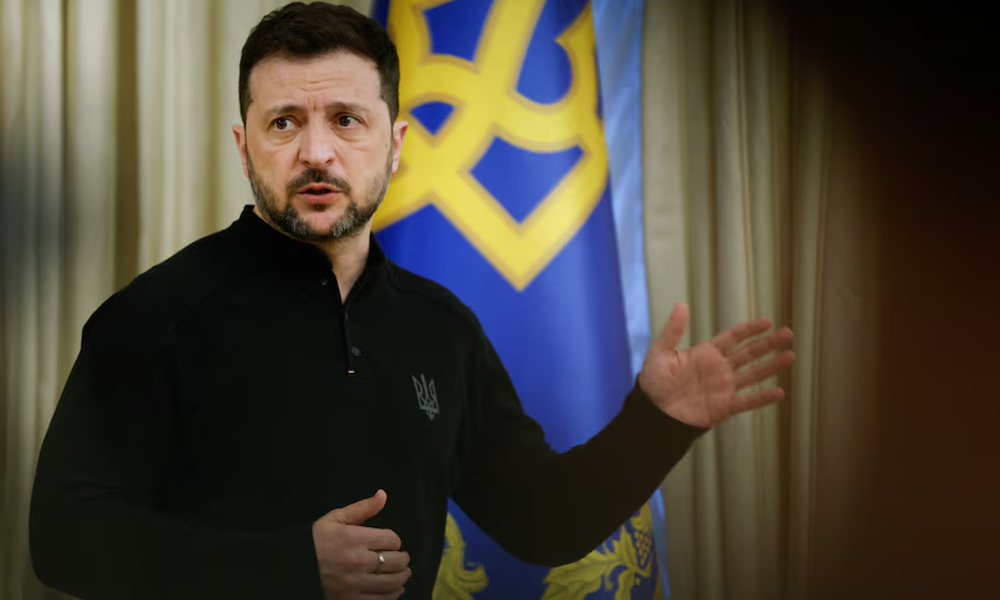
President Volodymyr Zelenskiy said on Tuesday that Ukraine would be ready to hold talks with Russia in any format once a ceasefire deal is in place and the fighting has stopped, Reuters reported.
The Ukrainian leader also told reporters at a briefing that a Ukrainian delegation meeting officials from Western countries in London on Wednesday would have a mandate to discuss a full or partial ceasefire.
“We are ready to record that after a ceasefire, we are ready to sit down in any format so that there are no dead ends,” Zelenskiy said in the presidential office in Kyiv.
“It will not be possible to agree on everything quickly,” he warned, noting numerous highly complex issues such as territory, security guarantees and Ukraine’s membership in the NATO military alliance.
He said that Ukraine would not recognise Moscow’s de jure control of the peninsula of Crimea as part of any deal as such a move would go against the Ukrainian constitution. Russia seized Crimea in 2014 and later annexed it.
Ukraine, he said, would be ready to partner with the United States to restore the work of the vast, Russian-occupied Zaporizhzhia nuclear power plant. There had been no such formal proposal from Washington about that, however, he added.
The talks in London, which are set to bring together officials from the United States, Britain, France, Germany and Ukraine, come amid a flurry of U.S.-led diplomatic efforts to find a way to end Russia’s war with Ukraine, read the report.
In an apparent change of plan, U.S. Secretary of State Marco Rubio will not be attending the talks in London, a State Department spokesperson said on Tuesday, adding that Washington’s Ukraine envoy General Keith Kellogg would attend.
Zelenskiy said he would be happy to meet U.S. President Donald Trump later this week when they attend the funeral of Pope Francis along with other world leaders.
Ukraine, Zelenskiy said, would also step up its diplomatic outreach this week and that he would meet South African President Cyril Ramaphosa, as well as the leaders of Spain, Poland and the Czech Republic.
World
Putin says he is open to direct peace talks with Ukraine
Zelenskiy, in his nightly video address, said Ukraine stood by its proposal for an end to attacks on civilian targets and was ready for any form of discussion to achieve it.

Russian President Vladimir Putin proposed on Monday bilateral talks with Ukraine for the first time since the early days of the war, and his Ukrainian counterpart Volodymyr Zelenskiy said Kyiv was eager to discuss a halt to attacks on civilian targets, Reuters reported.
While Zelenskiy did not respond directly to Putin’s proposal, he emphasized in his nightly video address that Ukraine “was ready for any conversation” about a ceasefire that would stop strikes on civilians.
The two leaders face pressure from the United States, which has threatened to walk away from its peace efforts unless some progress is achieved.
Russia and Ukraine have said they are open to further ceasefires after a 30-hour Easter truce declared by Moscow at the weekend. Each side accused the other of violating it.
Ukraine will take part in talks with the U.S. and European countries on Wednesday in London, Zelenskiy said. The discussions are a follow-up to a Paris meeting last week where the U.S. and European states discussed ways to end the more than three-year-old war, read the report.
Putin, speaking to a Russian state TV reporter, said fighting had resumed after the Easter ceasefire, which he announced unilaterally on Saturday. And Moscow, he said, was open to any peace initiatives and expected the same from Kyiv.
“We have always talked about this, that we have a positive attitude towards any peace initiatives. We hope that representatives of the Kyiv regime will feel the same way,” Putin told state TV reporter Pavel Zarubin.
Kremlin spokesman Dmitry Peskov, quoted later by Interfax news agency, told reporters: “When the president said that it was possible to discuss the issue of not striking civilian targets, including bilaterally, the president had in mind negotiations and discussions with the Ukrainian side.”
There have been no direct talks between the two sides since the early weeks after Russia’s February 2022 invasion, Reuters reported.
Zelenskiy, in his nightly video address, said Ukraine stood by its proposal for an end to attacks on civilian targets and was ready for any form of discussion to achieve it. Previously, the U.S. and Ukraine had framed this as a 30-day ceasefire.
“Ukraine maintains its proposal not to strike at the very least civilian targets. And we are expecting a clear response from Moscow,” he said. “We are ready for any conversation about how to achieve this.”
He said the London talks “have a primary task: to push for an unconditional ceasefire. This must be the starting point.”
Zelenskiy had earlier on Monday said an unconditional ceasefire would be “followed by the establishment of a real and lasting peace”.
Washington has said it would welcome an extension of the weekend truce. Zelenskiy said continued Russian attacks during the Easter ceasefire showed Moscow was intent on prolonging the war, read the report.
Zelenskiy also said that Ukraine’s forces were instructed to continue to mirror the Russian army’s actions.
“The nature of Ukraine’s actions will remain symmetrical: ceasefire will be met with ceasefire, and Russian strikes will be met with our own in defence. Actions always speak louder than words,” he said on X.
U.S. President Donald Trump and Secretary of State Marco Rubio both said on Friday that Washington could abandon the peace talks without progress within days. Trump struck a more optimistic note Sunday, saying that “hopefully” the two sides would make a deal “this week”.
Russia’s demands include Ukraine ceding all the land Putin claims to have annexed and accepting permanent neutrality. Ukraine says that would amount to surrender and leave it undefended if Moscow attacks again.
“President Putin and the Russian side remain open to seeking a peaceful settlement. We are continuing to work with the American side and, of course, we hope that this work will yield results,” Peskov told reporters.
World
Pentagon chief Hegseth shared sensitive Yemen war plans in second Signal chat, source says
The revelations of a second Signal chat raise more questions about Hegseth’s use of an unclassified messaging system to share highly sensitive security details
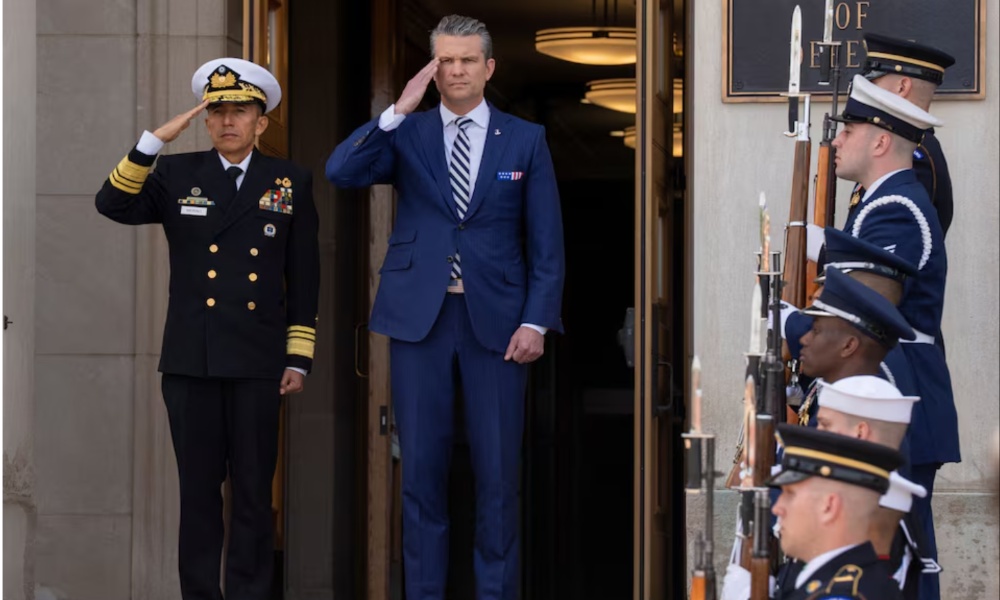
U.S. Defense Secretary Pete Hegseth shared details of a March attack on Yemen’s Iran-aligned Houthis in a message group that included his wife, brother and personal lawyer, a source familiar with the matter told Reuters on Sunday.
The revelations of a second Signal chat raise more questions about Hegseth’s use of an unclassified messaging system to share highly sensitive security details and come at a particularly delicate moment for him, with senior officials ousted from the Pentagon last week as part of an internal leak investigation.
In the second chat, Hegseth shared details of the attack similar to those revealed last month by The Atlantic magazine after its editor-in-chief, Jeffrey Goldberg, was included in a separate chat on the Signal app by mistake, in an embarrassing incident involving all of President Donald Trump’s most senior national security officials.
The person familiar with the matter, who was speaking on condition of anonymity, said the second chat included about a dozen people and was created during his confirmation process to discuss administrative issues rather than detailed military planning.
The chat included details of the schedule of the air strikes, the person said.
Hegseth’s wife, Jennifer, a former Fox News producer, has attended sensitive meetings with foreign military counterparts, according to images the Pentagon has publicly posted.
During a meeting Hegseth had with his British counterpart at the Pentagon in March, his wife could be seen sitting behind him.
Hegseth’s brother is a Department of Homeland Security liaison to the Pentagon.
The Trump administration has aggressively pursued leaks, an effort that has been enthusiastically embraced by Hegseth at the Pentagon.
Pentagon spokesperson Sean Parnell, without evidence, said that the media was “enthusiastically taking the grievances of disgruntled former employees as the sole sources for their article.”
“The Trump-hating media continues to be obsessed with destroying anyone committed to President Trump’s agenda. … We’ve already achieved so much for the American warfighter, and will never back down,” Parnell said in a statement on X.
White House spokesperson Anna Kelly said that “recently fired ‘leakers’ are continuing to misrepresent the truth to soothe their shattered egos and undermine the President’s agenda.
Democratic lawmakers said Hegseth could no longer stay in his job.
“We keep learning how Pete Hegseth put lives at risk,” Senate Minority Leader Chuck Schumer said in a post to X. “But Trump is still too weak to fire him. Pete Hegseth must be fired.”
Senator Tammy Duckworth, an Iraq War veteran who suffered grave injuries in combat in 2004, said that Hegseth “must resign in disgrace.”
A U.S. official at the Pentagon questioned how Hegseth could keep his job after the latest news.
The latest revelation comes days after Dan Caldwell, one of Hegseth’s leading advisers, was escorted from the Pentagon after being identified during an investigation into leaks at the Department of Defense.
Although Caldwell is not as well known as other senior Pentagon officials, he has played a critical role for Hegseth and was named as the Pentagon’s point person by the Secretary in the first Signal chat.
“We are incredibly disappointed by the manner in which our service at the Department of Defense ended,” Caldwell posted on X on Saturday. “Unnamed Pentagon officials have slandered our character with baseless attacks on our way out the door.”
Following Caldwell’s departure, less-senior officials Darin Selnick, who recently became Hegseth’s deputy chief of staff, and Colin Carroll, who was chief of staff to Deputy Defense Secretary Steve Feinberg, were put on administrative leave and fired on Friday. – REUTERS
-

 International Sports3 days ago
International Sports3 days agoIPL 2025: Robo-Dog ‘Champak’ explained
-

 Latest News4 days ago
Latest News4 days agoAriana Afghan Airlines increases flights to China
-

 World4 days ago
World4 days agoPentagon chief Hegseth shared sensitive Yemen war plans in second Signal chat, source says
-

 Latest News3 days ago
Latest News3 days agoAfghan-American appointed to lead US policy on Afghanistan
-

 Latest News4 days ago
Latest News4 days agoChina invites various Afghan delegations to attend Shanghai forums
-
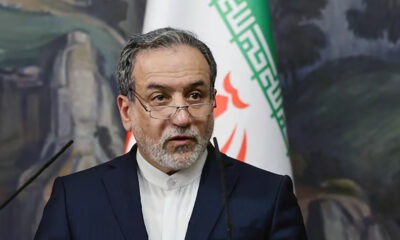
 Regional3 days ago
Regional3 days agoIran’s top diplomat to visit China on Tuesday
-
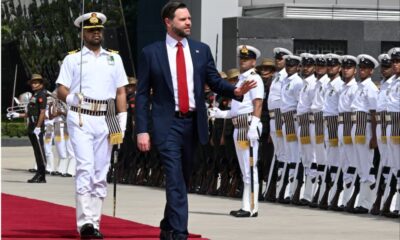
 Regional4 days ago
Regional4 days agoJD Vance arrives in India, to hold talks with Modi under US tariffs shadow
-
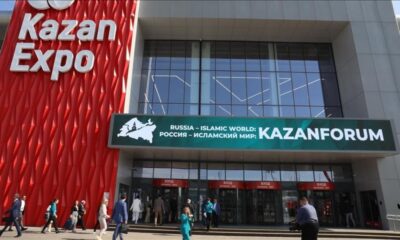
 Latest News3 days ago
Latest News3 days agoAfghanistan to showcase goods at expo as part of KazanForum






